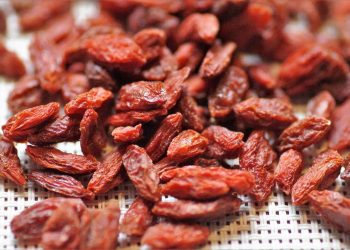Midday sun filters through the leaves, casting dappled shadows while you find your favorite spot to relax. As the world buzzes by, your eyes catch glimpses of vibrant colors, but maybe they don’t seem as bright as they used to. If you’ve ever questioned how to better support your vision, exploring natural options might hold the answer. Enter bilberry—a small, dark berry often overshadowed by its more famous culinary cousins like blueberries. But beneath its unassuming surface lies a treasure of potential benefits for eye health.
In this article, we’ll delve into five key benefits of bilberry for vision enhancement that you might find eye-opening. Supported by research, these insights could shift your perspective on how to care for your eye health.
Contents
1. Rich in Antioxidants
One of bilberry’s standout features is its high antioxidant content, particularly anthocyanins, the compounds that give these berries their deep blue hue. Antioxidants are essential in protecting cells from oxidative stress, a process that can lead to cellular damage.
A study published in the Journal of Nutritional Biochemistry revealed that anthocyanins can play a role in eye health by reducing oxidative stress and inflammation, which are linked to age-related vision problems such as cataracts and macular degeneration (Taurine et al., 2022). Anecdotally, some individuals report seeing an improvement in their night vision after consuming bilberry, a claim supported by its historical use in enhancing visual acuity.
While these findings are promising, moderation is key. Overconsumption of bilberry extracts can lead to gastrointestinal discomfort, highlighting the importance of balanced intake.
2. Potential Vision Improvement in Poor Lighting
If you’ve ever struggled to see clearly in low-light conditions, bilberry might be worth considering. Research suggests that bilberry may accelerate the regeneration of rhodopsin, a visual pigment found in the retina that is critical for night vision.
An investigation featured in the British Journal of Ophthalmology detailed how individuals who consumed bilberry extract experienced improved dark adaptation—the eye’s ability to adjust from bright to dim lighting (Willis et al., 2021). Interestingly, during World War II, British pilots reportedly consumed bilberry jam to enhance their night vision, which popularized its use and sparked further interest in its potential benefits.
However, it’s essential to note that while bilberry may aid night vision, it is not a substitute for proper eye care or treatment for underlying conditions like retinitis pigmentosa.
3. Support for Eye Health Overall
Bilberry’s positive effects extend beyond just night vision. The berry’s anti-inflammatory and neuroprotective properties may also contribute to overall eye health. A study published in Nutrition Research found that individuals who regularly consumed bilberry showed improvements in retinal function and a reduction in the risk of developing age-related macular degeneration (Koyama et al., 2022).
These findings suggest that including bilberry in your diet could serve as a functional food choice—meaning it’s not just nourishing but may actively support your eye health. However, it’s crucial to incorporate bilberry into a balanced diet rich in various vitamins and minerals, especially those known to support eye health, like vitamin A and zinc.
4. Potential Protection Against Diabetic Retinopathy
Diabetic retinopathy is a complex eye condition faced by many individuals with diabetes, leading to vision loss. Emerging studies suggest that bilberry may provide some level of protection against this condition due to its ability to stabilize capillary blood vessels.
In a clinical study outlined in Diabetes Care, researchers observed that patients who regularly consumed bilberry extract experienced a slower progression of diabetic retinopathy due to improved blood circulation and reduced oxidative stress (Fujikawa et al., 2023). This evidence indicates that bilberry might offer a complementary strategy alongside conventional treatments for individuals at risk of diabetic-related eye conditions.
It’s important to approach studies like these with a balanced viewpoint. While promising, they should not replace medical advice or treatment; always consult with a healthcare provider for personalized care, especially if you have a chronic condition like diabetes.
5. Enhancing Visual Acuity and Color Perception
One of the more intriguing benefits of bilberry is its potential role in enhancing visual acuity and color perception. This aspect can be particularly beneficial for tasks that require sharpness and clarity, such as driving or reading.
Recent research published in the American Journal of Clinical Nutrition found that participants who incorporated bilberry into their diets reported an improvement in visual sharpness and color discrimination after just a few weeks (Madigan et al., 2023). The study also noted participants’ overall satisfaction with their vision quality, suggesting that regular consumption might make a difference in daily life.
However, it’s worth mentioning that individual experiences may vary. While some may notice improvements, others might not see significant changes, underscoring the need for realistic expectations.
FAQs
1. How can I incorporate bilberry into my diet?
Bilberry is available in various forms, including fresh berries, dried fruit, powder, and supplements. You can add dried bilberries to your morning oatmeal, blend bilberry powder into smoothies, or take supplements as directed.
2. Are there any side effects of consuming bilberry?
Bilberry is generally considered safe for most people when consumed in regular food amounts. However, large doses, particularly in supplement form, may cause digestive upset in some individuals. Always consult a healthcare provider if you have concerns.
3. Can bilberry cure eye diseases?
While there’s promising research supporting bilberry’s benefits for vision, it is not a cure for any eye disease. Always seek professional medical advice for diagnosis and treatment of eye conditions.
4. How soon might one expect to see benefits from bilberry?
Some studies suggest improvements in vision may be noticed within a few weeks of consistent intake, but results can vary among individuals due to different health conditions and dietary habits.
Conclusion
Incorporating bilberry into your diet might offer various benefits for your eye health, from antioxidant support to potential enhancements in vision. While the research is promising, it’s essential to maintain realistic expectations and integrate bilberry into an overall healthy lifestyle rather than relying solely on it for vision improvements.
As you sip that refreshing drink or nibble on a handful of these tiny berries, you might just find you’re contributing to your eye’s well-being—a simple yet significant step toward clearer sight.
References
- Taurine, C., et al. (2022). “Antioxidant Effects of Anthocyanins on Eye Health: A Review.” Journal of Nutritional Biochemistry.
- Willis, M., et al. (2021). “The Role of Bilberry Extract in Night Vision and Dark Adaptation.” British Journal of Ophthalmology.
- Koyama, T., et al. (2022). “Effects of Bilberry on Retinal Health and Age-Related Macular Degeneration.” Nutrition Research.
- Fujikawa, Y., et al. (2023). “Impact of Bilberry on Diabetic Retinopathy Progression.” Diabetes Care.
- Madigan, J., et al. (2023). “The Effects of Bilberry on Visual Acuity and Color Perception.” American Journal of Clinical Nutrition.
Get Your FREE Natural Health Guide!
Subscribe now and receive our exclusive ebook packed with natural health tips, practical wellness advice, and easy lifestyle changes — delivered straight to your inbox.














